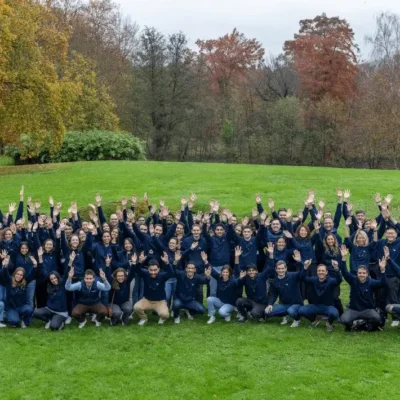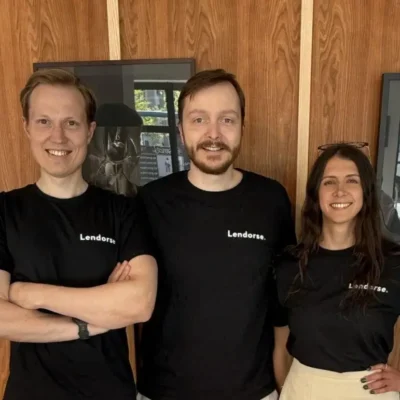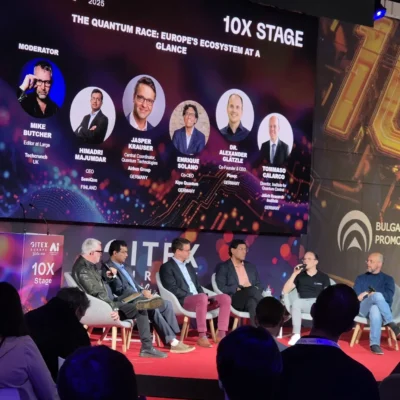Swiss photonics startup Lightium, using TFLN technology, has raised $7M in seed money to accelerate data center performance and reduce energy usage.
Led by Vsquared Ventures and Lakestar, the funding will quicken the commercialization of Lightium’s foundry services for production-grade Thin-Film Lithium Niobate (TFLN) Photonic Integrated Circuits (PICs).
Lightium is the first company to design and produce TFLN-based photonic devices on an industrial scale.
The exponential growth of artificial intelligence (AI) and technologies such as ChatGPT is resulting in massive data volumes and unparalleled energy usage. Data centers are expected to process 100 times more data and use up to 10% of the global electrical supply by 2030. They are currently the fifth-largest energy consumer in the world, with electricity usage worldwide matching that of Japan.
Dr. Amir Ghadimi, CEO of Lightium, said:
“Current semiconductor-based technologies that power data centers have reached their limits – they cannot run faster or more efficiently. Lightium employs TFLN to address this issue, and we have finally perfected the production process to supply this technology to the market on a large scale. What was formerly exclusive to research and development cleanrooms and universities is now a reality that the sector can embrace.”
Related Content: Location Intelligence – Accurat.ai Expands Across Europe
Large clusters of Central Processing Units (CPUs) and Graphic Processing Units (GPUs) are the core components of data centers. These processors are used to expedite compute-intensive operations, and optical interconnects are used to send data between them quickly. Although Nvidia and other firms have made great progress in increasing the power of GPUs, there is still a crucial difference in the data transmission speed and power efficiency of optical interconnects. Today’s semiconductor-based interconnects hit a limit of 800 Gb/s, falling short of the speed needed to keep up with the exponential growth of data.
Lightium provides commercial-scale, production-grade TFLN chip foundry services in order to address these issues. TFLN, a glass-like material, lowers power consumption and allows for a large increase in transmission speeds. Customers will benefit from data rates of 1.6 or 3.2 Tb/s while their ever-increasing digital consumption has less of an adverse effect on the environment and costs. Since TFLN is one of the hardest materials to work with, researchers and academics have only used it for prototyping in R&D environments. Lightium’s unique, mass-production-focused manufacturing technique effectively tackles this difficulty.
Lightium’s TFLN technology platform’s adaptability allows it to profit from additional applications and markets, including LIDAR applications, quantum computing, satellite communication, and innovative optical computer architectures. Because of this, its open-access foundry model is perfect for addressing the many technological demands in these industries.
To facilitate widespread commercialization, Lightium plans to improve its manufacturing, design, and testing skills over the course of the upcoming year, as well as optimize its Process Design Kit (PDK) and broaden its network of partnerships. Lightium, which is working with strategic partners to conduct a closed beta, plans to introduce its foundry services by the start of 2025. To support its expansion and innovation, the organization is actively seeking personnel.
Investors Thoughts:
Dr. Jakob Lingg, Investment Manager at Vsquared, said:
“Optical communication companies have clear roadmaps for future data transmission and energy requirements۔ A tremendous market drive exists for substitute materials with better electro-optical capabilities because silicon fails to match these needs. Moreover, these materials must withstand the challenging conditions in data centers and meet stringent performance requirements. In this context, TFLN shows up as a possible fix. Therefore, Vsquared feels thrilled to collaborate with Lightium, whose expertise drives this discovery and ensures that TFLN PICs can be made at wafer-scale for useful, scalable applications.”
Steven Jacobs, Lakestar Partner & CPO stated:
“Data centers and their customers demand better performance and lower costs as the demand for computing resources surges. Lightium allows data centers to achieve 10x or more speed increases by switching from silicon photonics, which has hit the physical limits of their material qualities, to TFLN, which can scale for the foreseeable future. TFLN can also reduce data center operating expenses, which are largely related to energy usage, due to its high level of efficiency. Customers of data centers, the environment, and data center operators would all greatly benefit from this.”





